Document handling through integrations
Introduction
The document describes the handling of the integration of EDI documents provided by the supplier in the context of returns processed to its systems. Using this document, we will perform return verification operations and make appropriate adjustments to material levels in our internal inventory. The document describes step by step all activities performed during these integrations and warehouse operations.
Task
The supplier sent us integration documents. We have deliveries in the system waiting for our approval. Our task is to check these deliveries, make corrections and transfer them to our warehouse. During this process, we will also have to return the materials to the supplier.
Implementation
We enter integration - there is a list of documents that do not have all the information. You need to help the system and point out what is missing and solve all problems that occurred during integration.
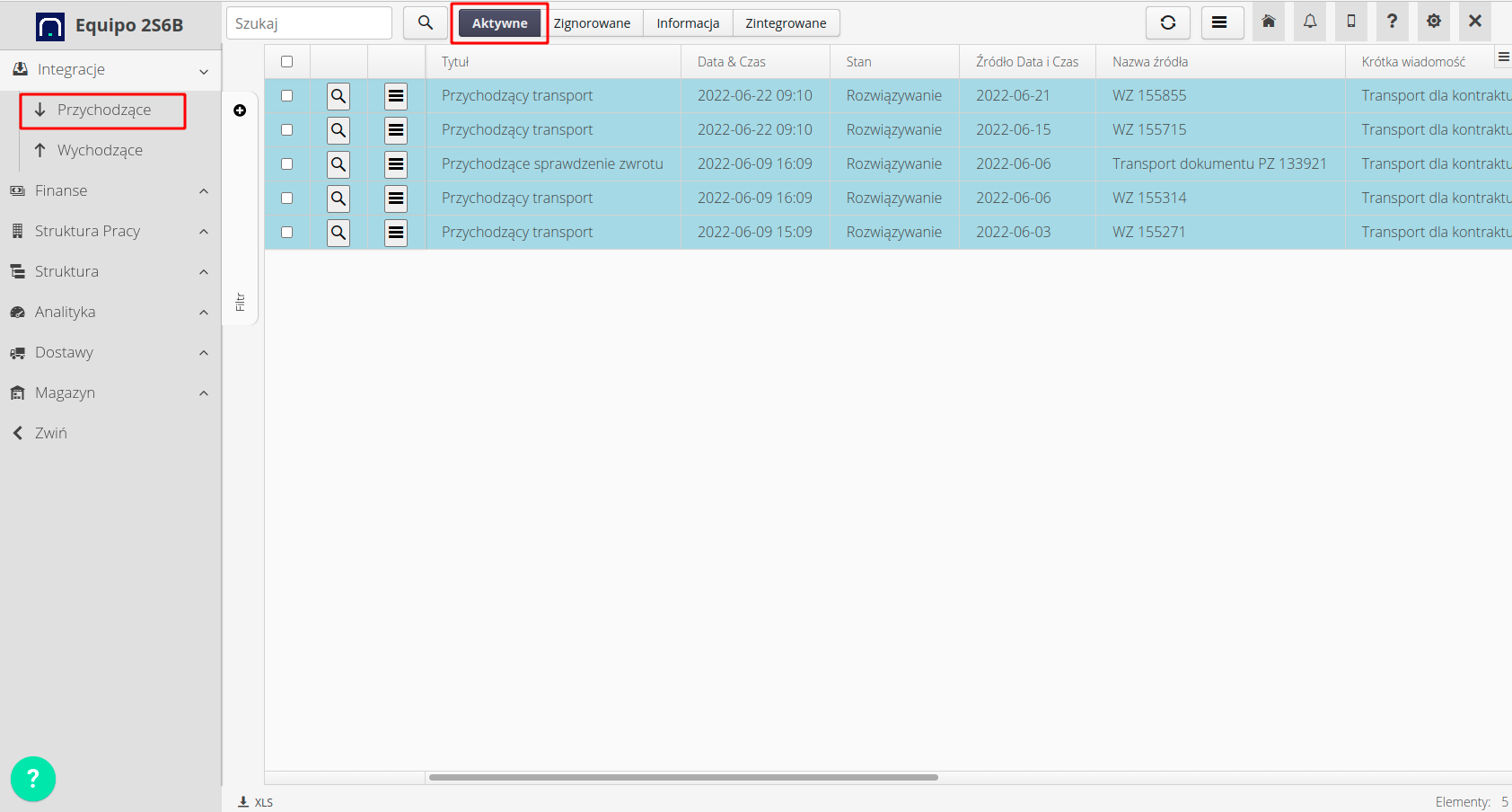
We solve the problem with the delivery document - we choose an action
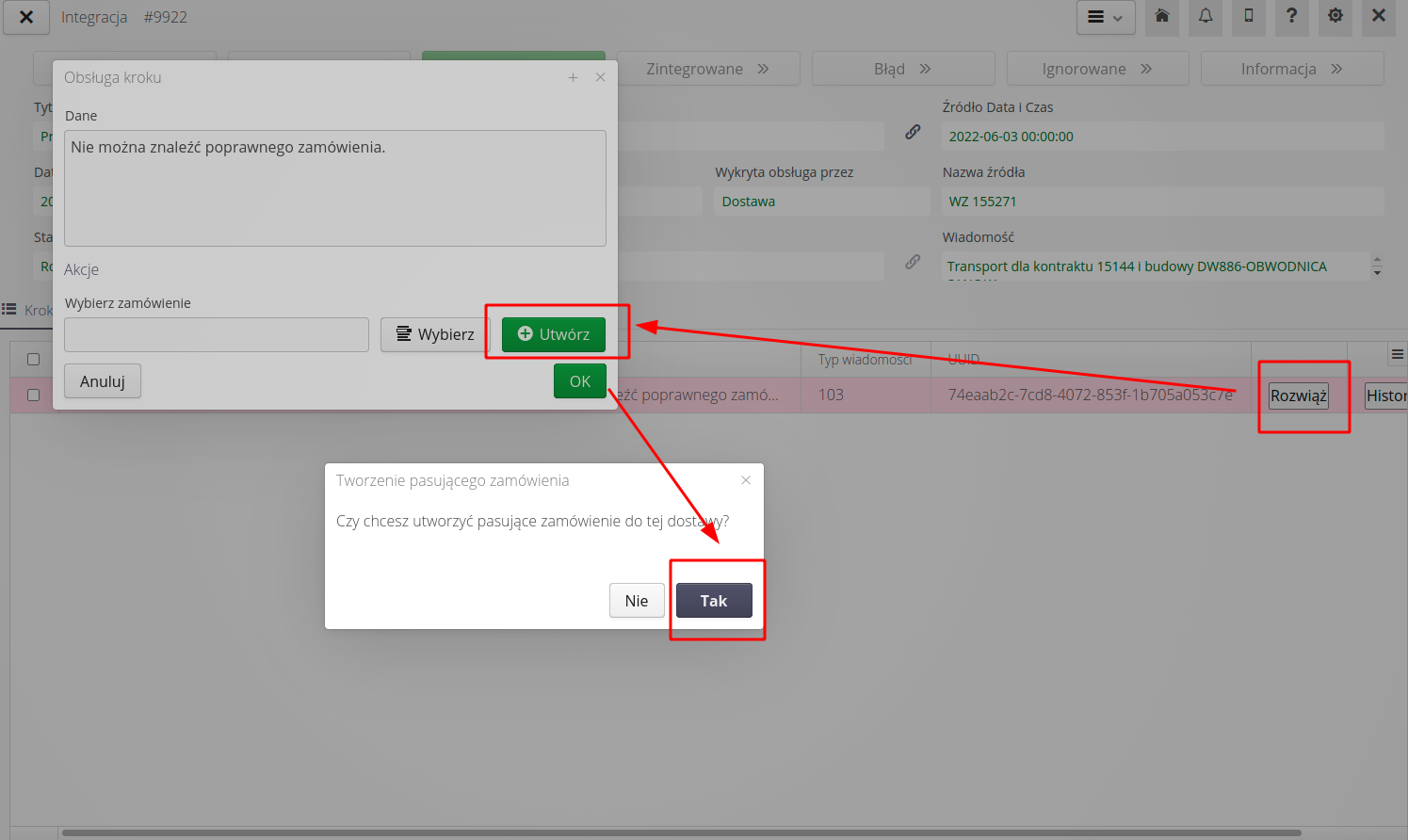
The system automatically creates all documents and automatically creates all documents with us. They are "in transit" because now we can verify or check them (if we did it before delivery) or enter any notes recorded differently (missing, damaged)
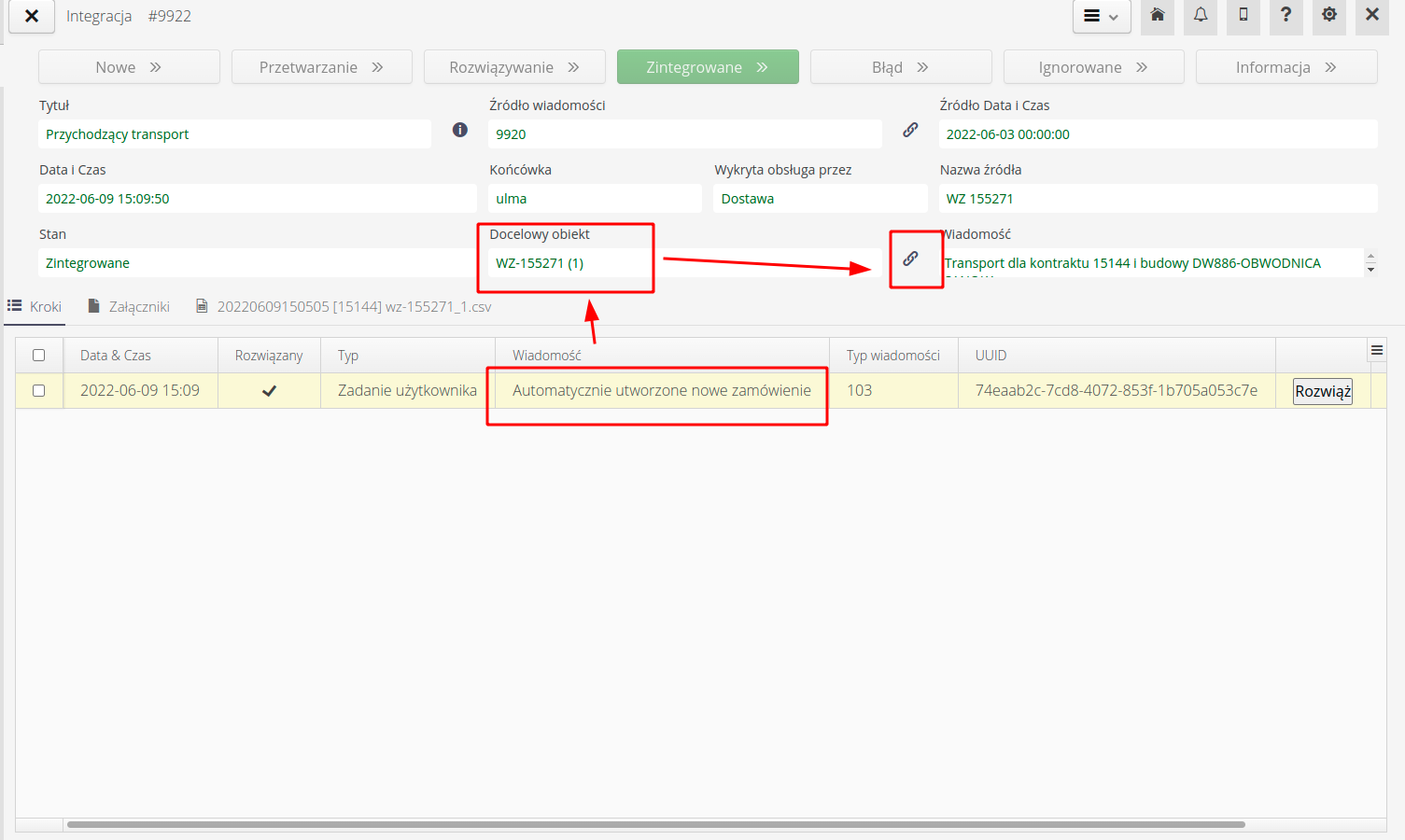
-
this is how we do it for all WZ’ek - this is how I did it and you have these documents in the system
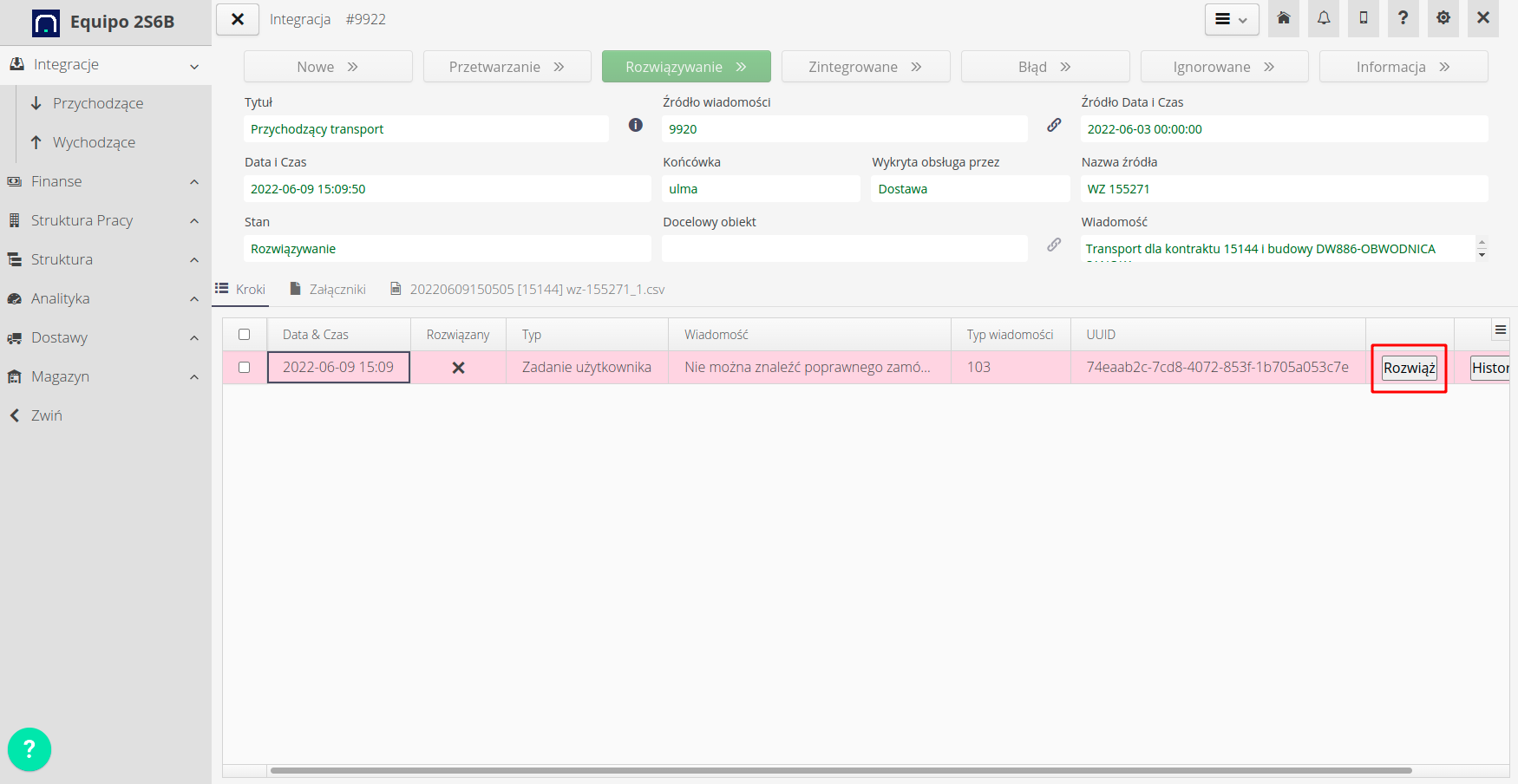
We didn’t place orders for this (but we could) so the system doesn’t find them. We tell him to create our orders retrospectively based on what came in
-
5 - there is one return document
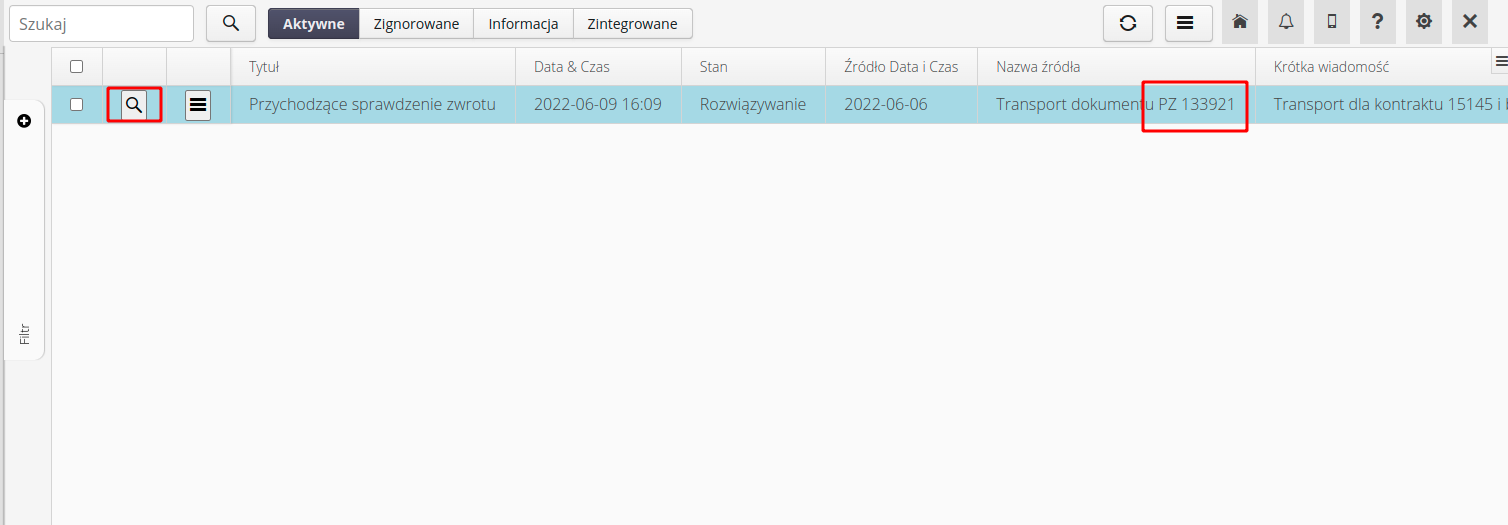
-
6 - we solve it, but here you can’t add a phrase automatically, you have to create it yourself
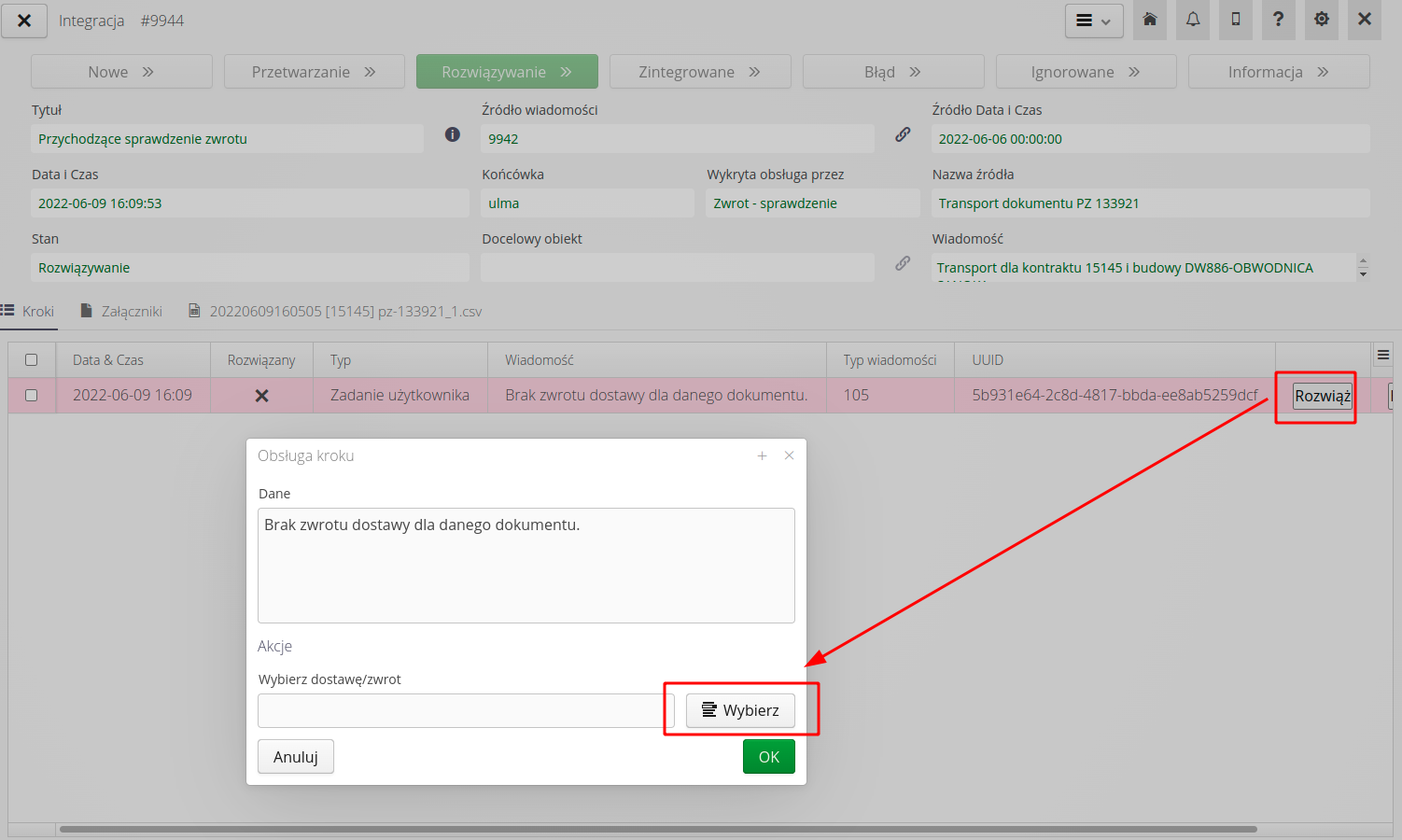
-
7 - list of orders - the refund comes from this account (and we probably refunded it from it)
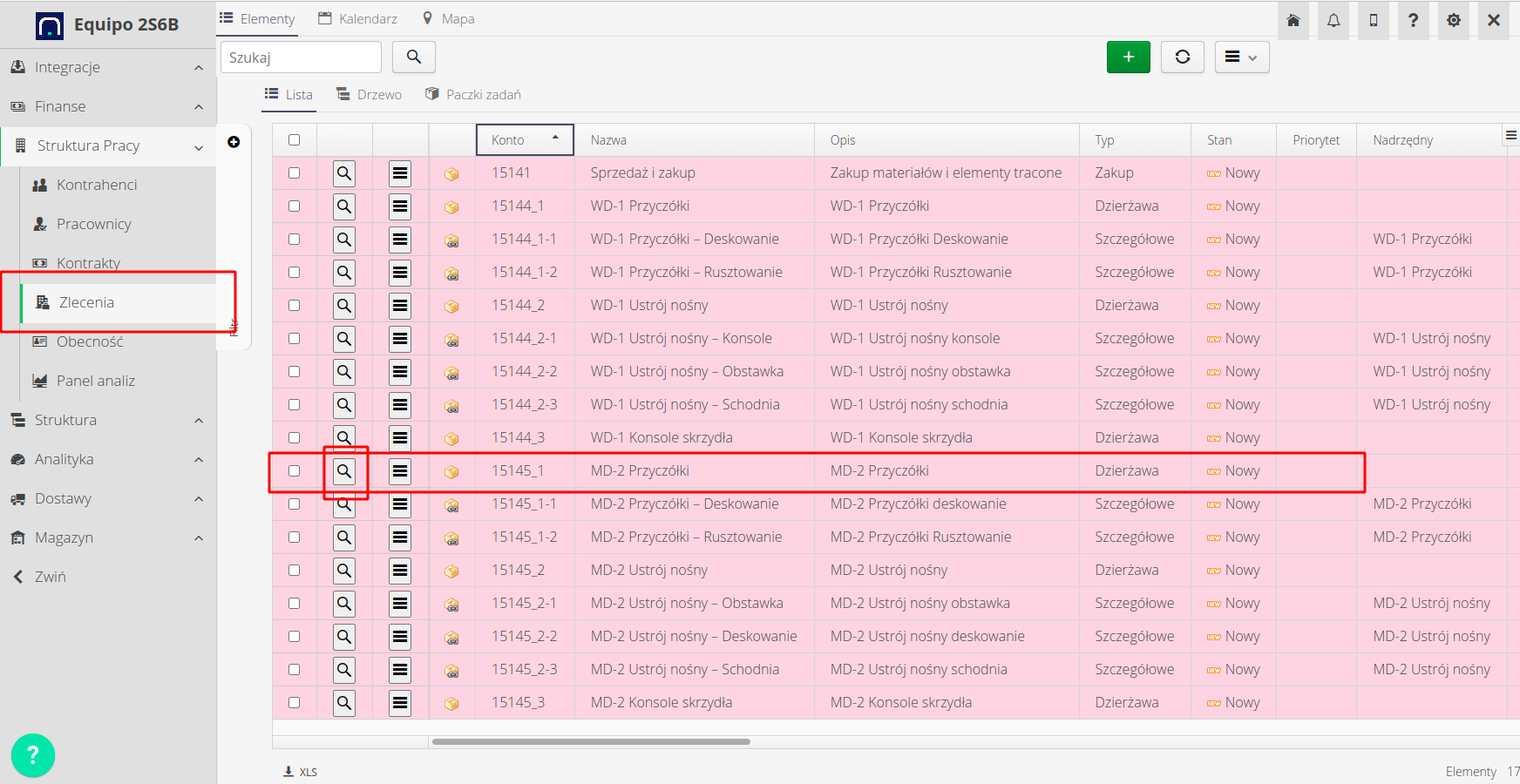
-
8 - if we want to return everything (declare), go to the given order, then the "orders" tab and create a return order
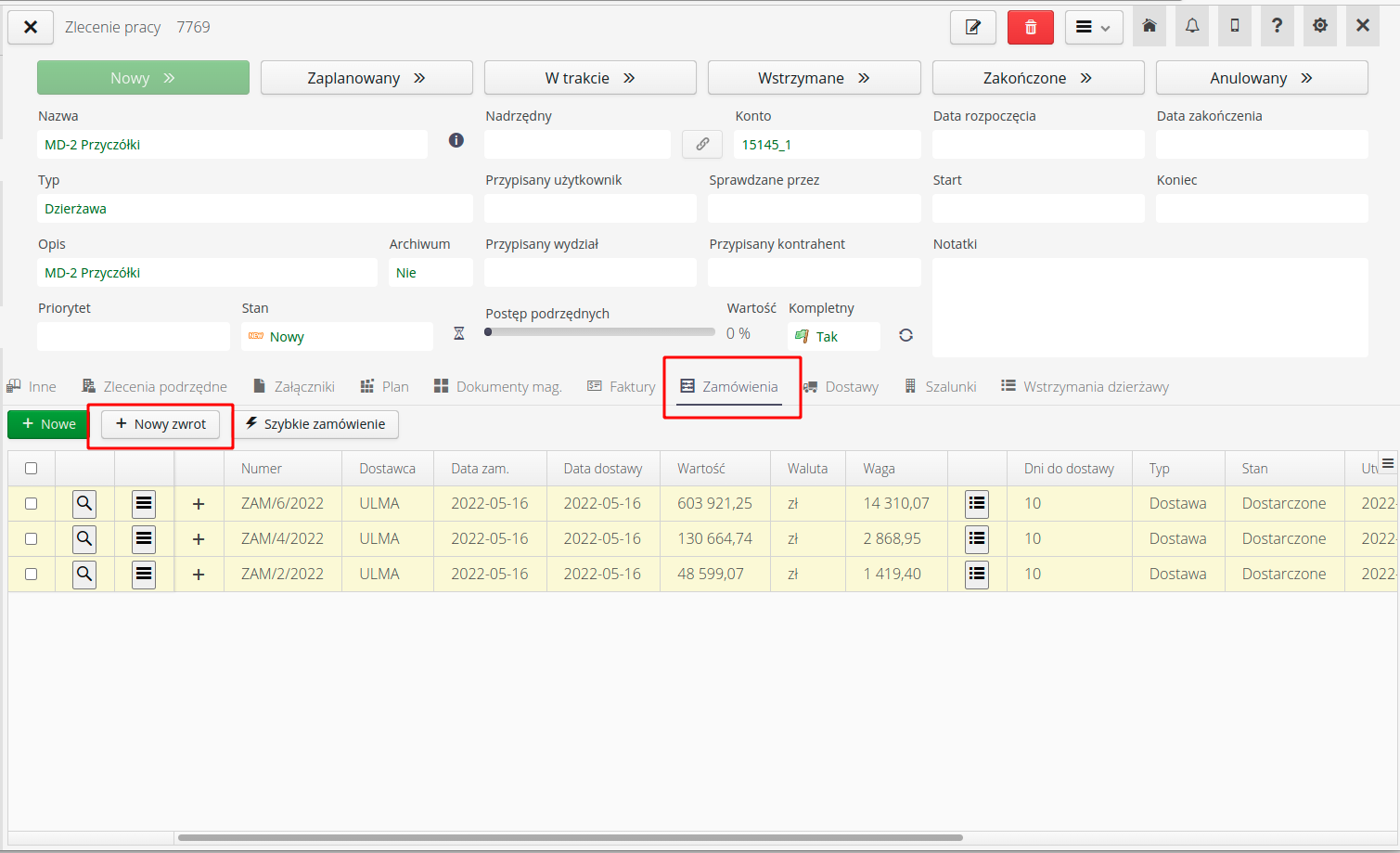
-
9 - our return order is automatically created with all materials in stock
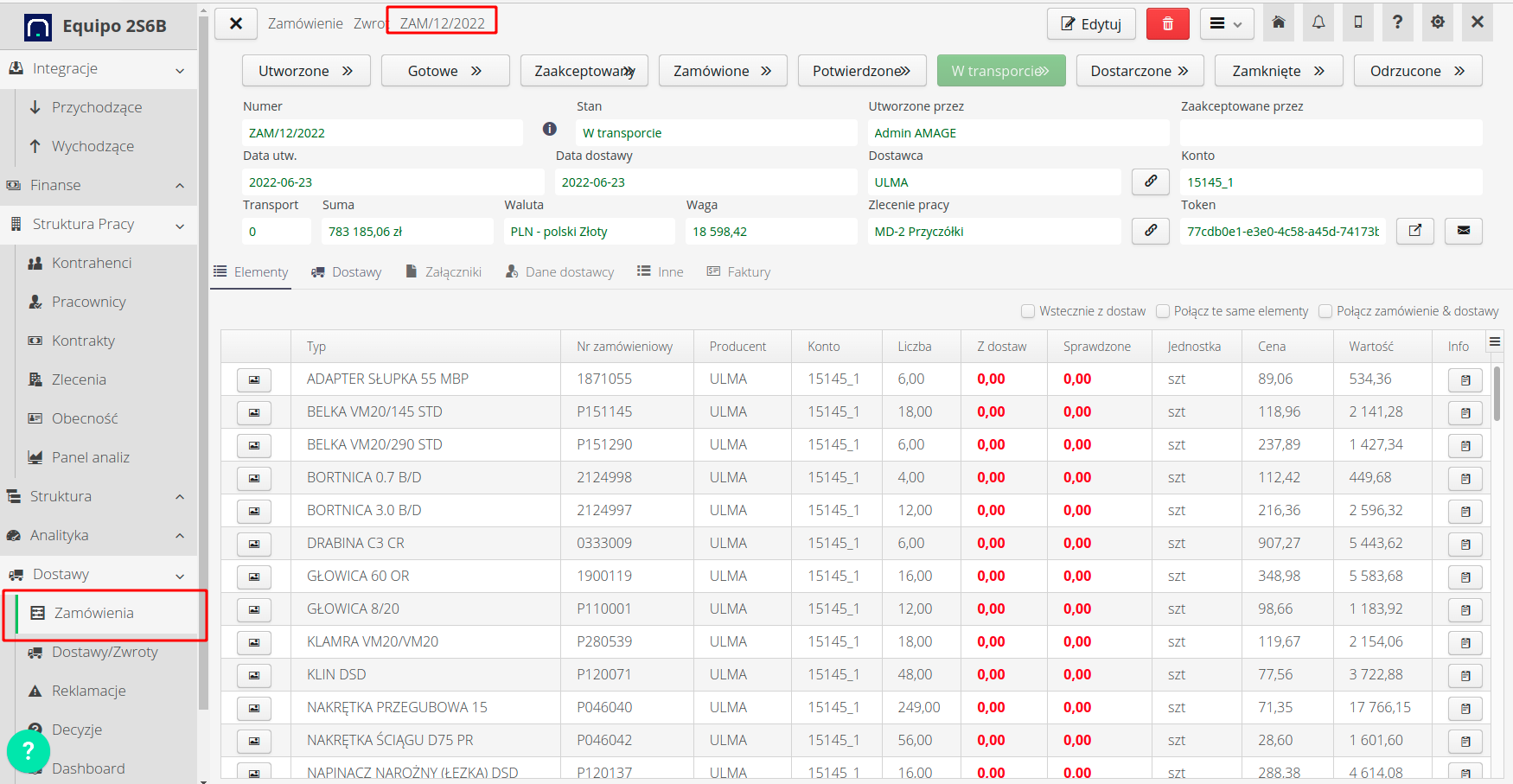
-
10 - in the Deliveries tab, we create the document that will store our loading (or only what the supplier counts)
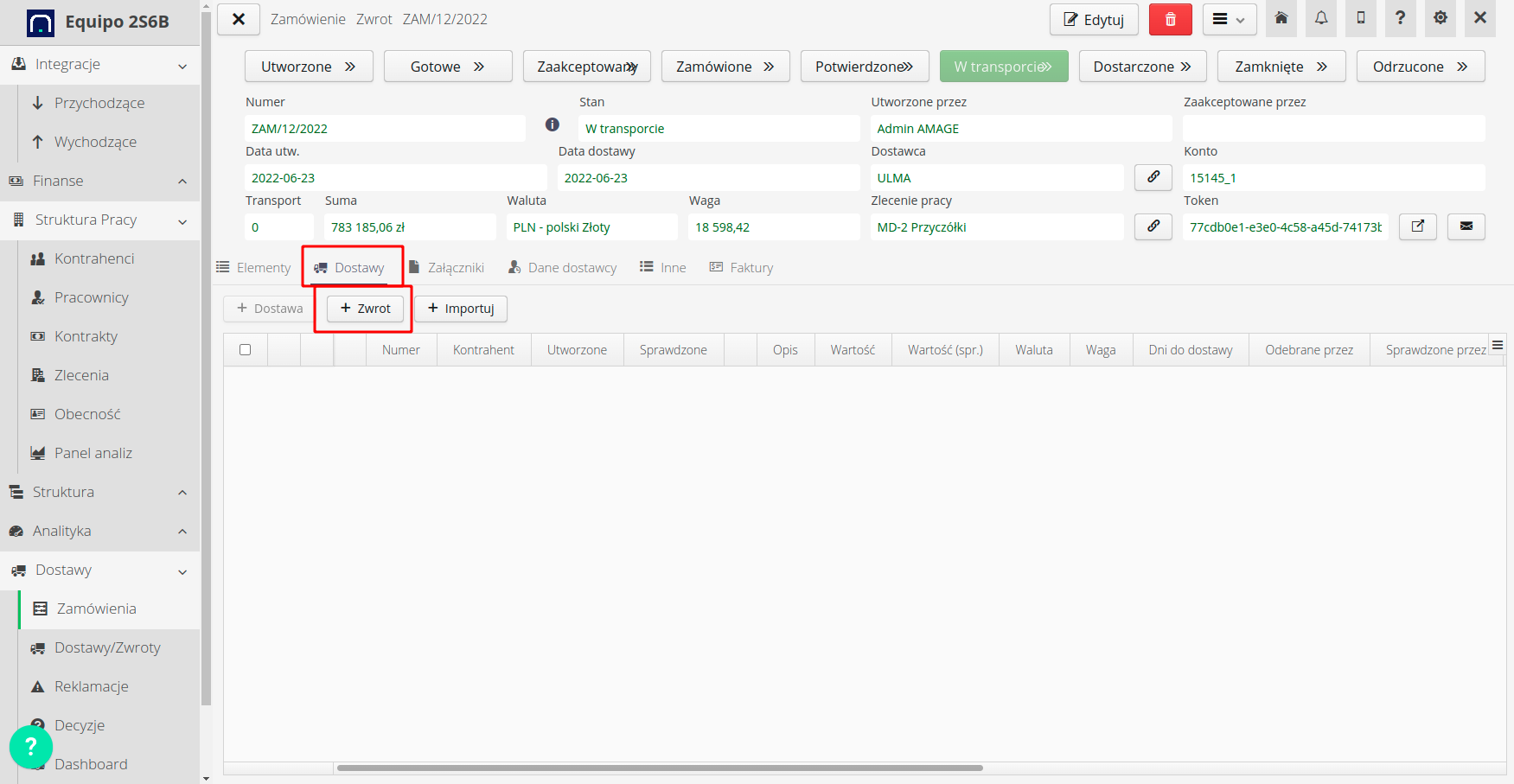
-
11 - create an empty document because the materials will come from ULMA (from this document that is waiting for service)
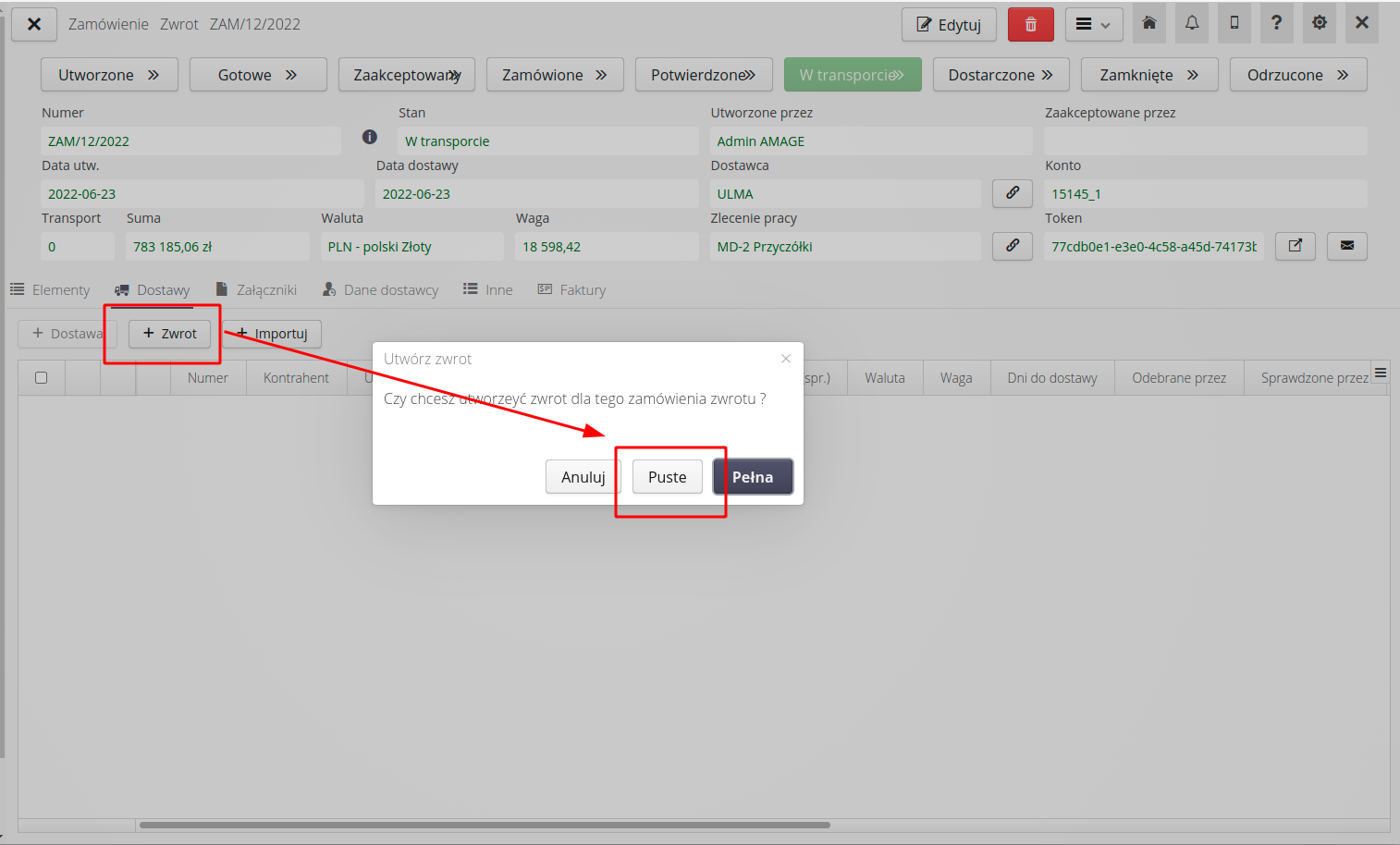
-
12 - we have an empty return document number TRAN/1/2022
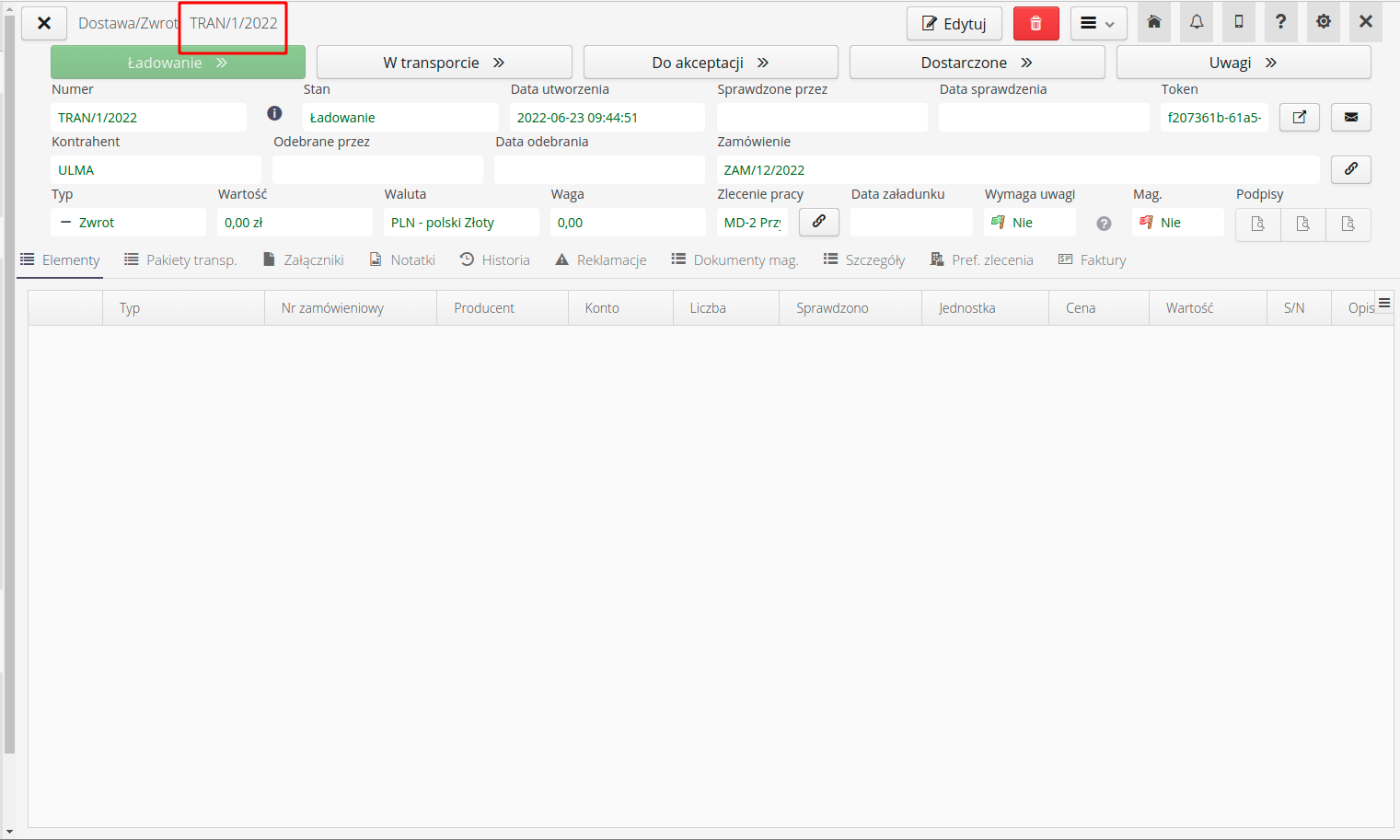
-
13 - we return to integration and show this document as for integration
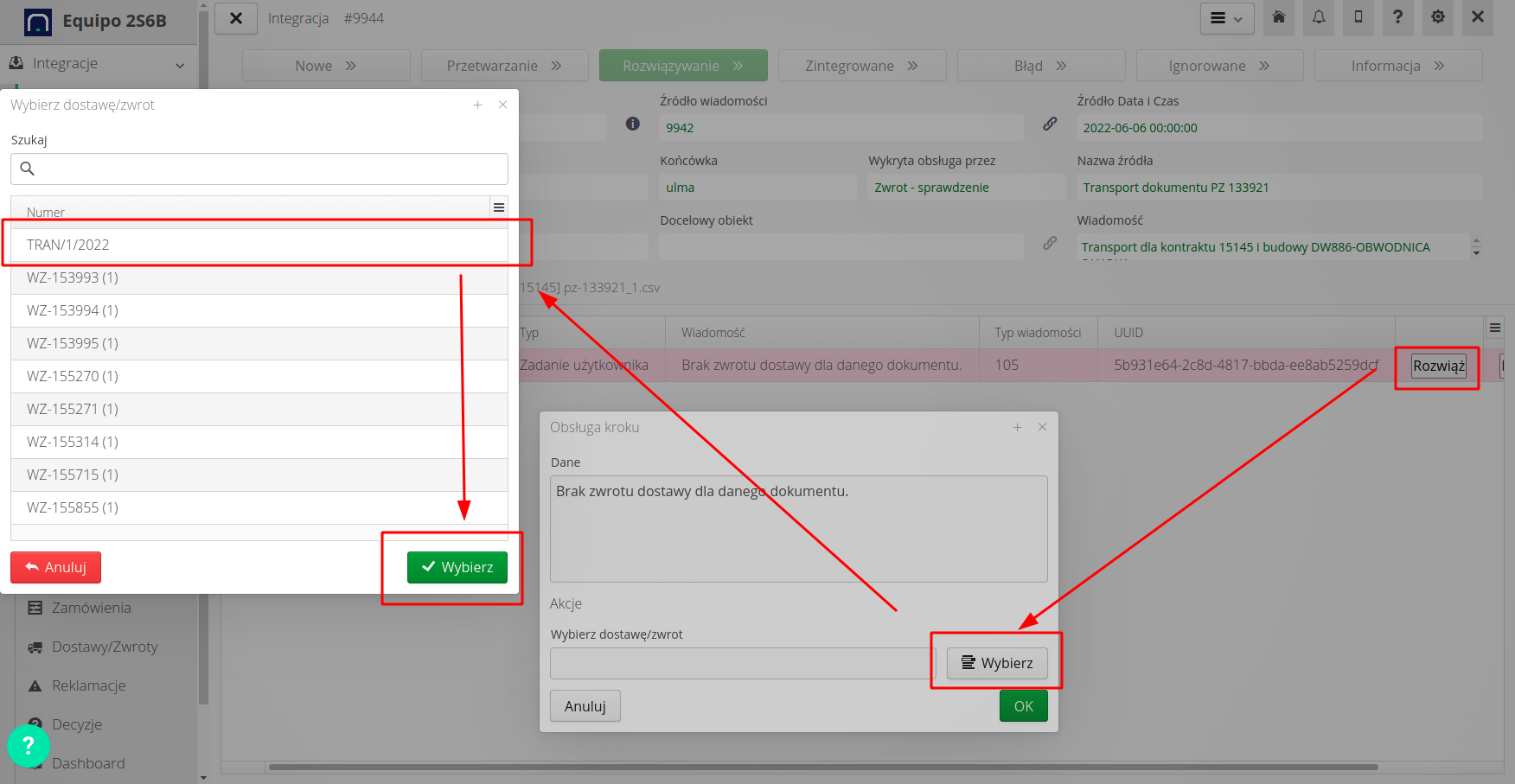
-
14 - the system creates everything - when we go to the order related to this return (ZAM/12/2022), we have a list in the view showing what was in full stock and what came from ULMA as a count. There you can see that, for example, the post adapter was 18 in our case and that’s how much the ULMA warehouse workers counted when returning it. but we have 4 pcs of the toeboard and Ulma didn’t count them (we probably didn’t give them back). We have 18 buckles and ULMA counted 12 of them. That’s why we have 6 in stock.
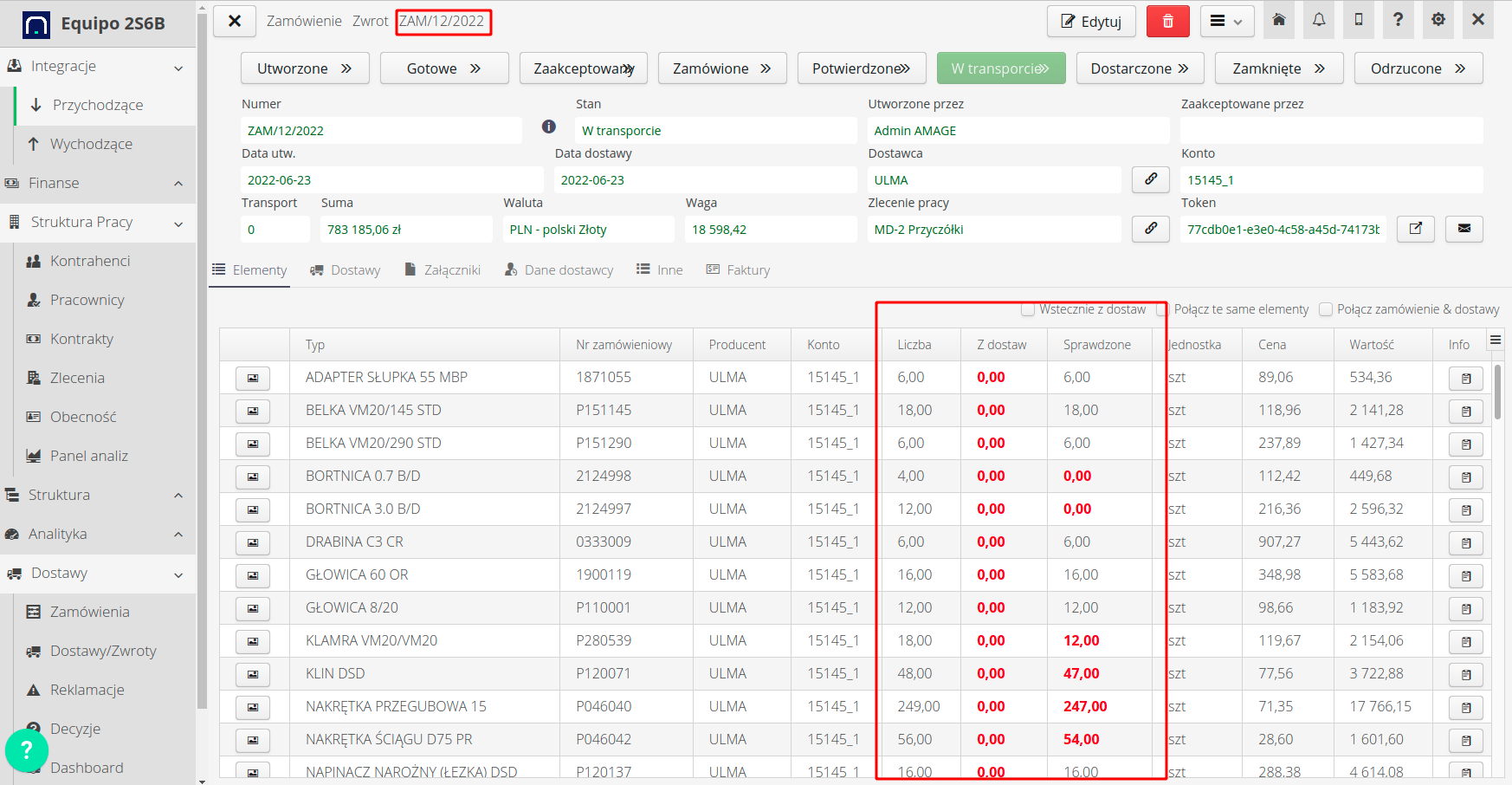
-
15 - we go to deliveries. Here are several WZ deliveries that are waiting for our approval (checking).
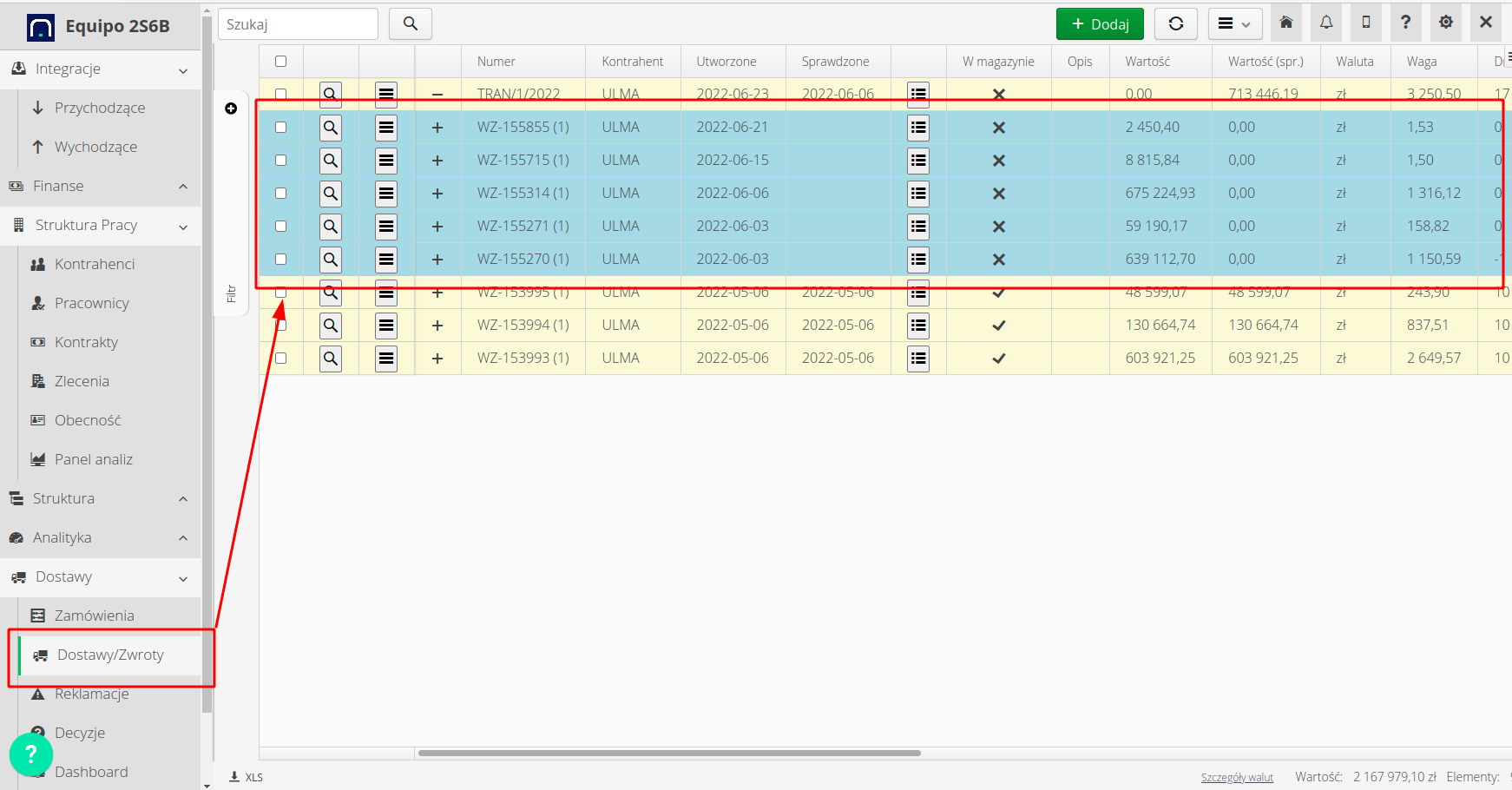
-
16 - if everything suits us, we can turn on "check automatically" from this menu and everything will be recalculated as Ulma sent it. If not, we can do "Check delivery/return" and then make corrections to what has arrived, attach photos, create a complaint, etc.
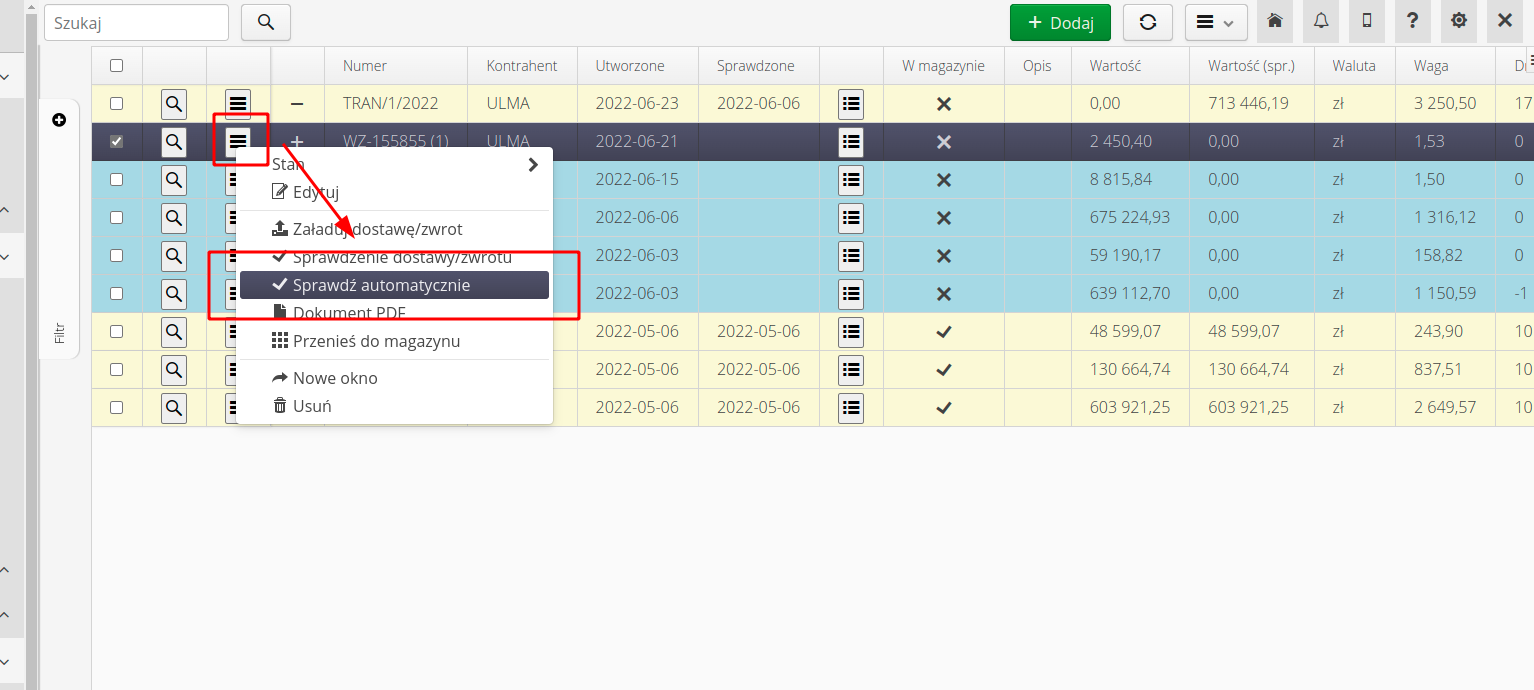
-
17 - if we do everything, we transfer it to our warehouse - only then will the quantity be updated in our stock.
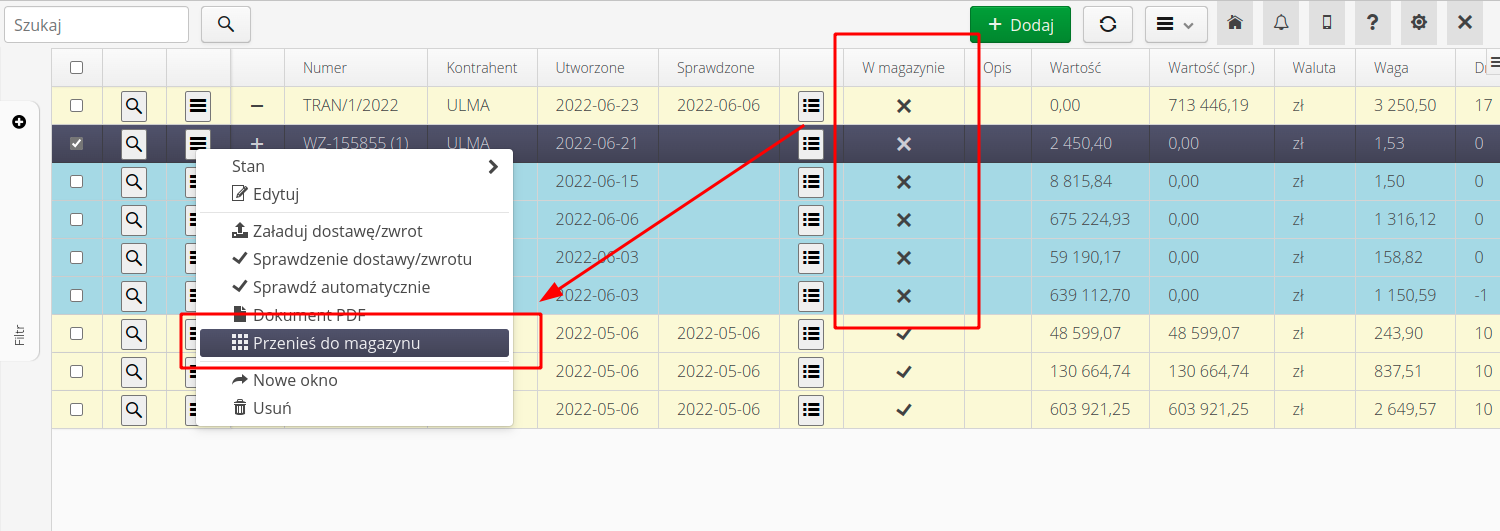
That is:
-
I made all documents in the integration according to these descriptions
-
you need to check the delivery documents that are in "Supplies". If the quantities match and there are no complaints, turn on automatic checking
-
then trigger the transfer to the warehouse (remember the dates because this is what determines the lease) and that’s it
-
Our stock levels will match all documents
| The Howto is based on system version 1.17.0.2 (03.2022) and presents features that may not be available in your system. Ask AMAGE about making this functionality available. |
| Due to ongoing development of the system, some screens or configuration files may look slightly different, but will still retain the full functionality described here. This does not affect the core functionality described in this document. |